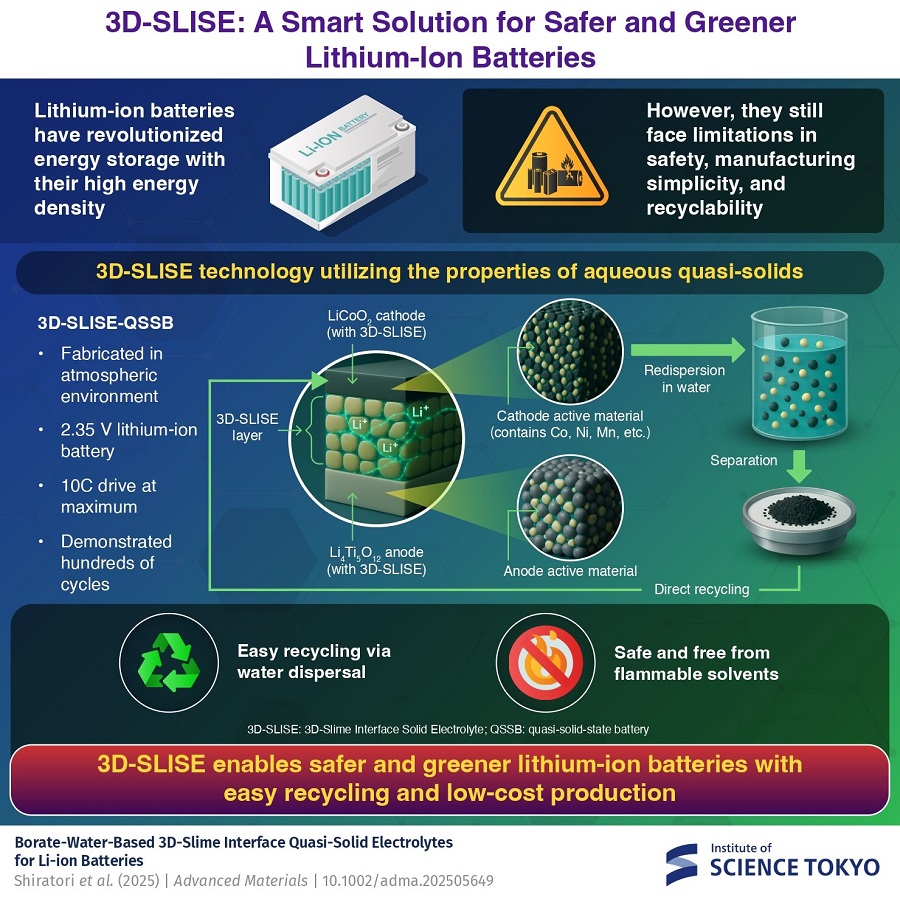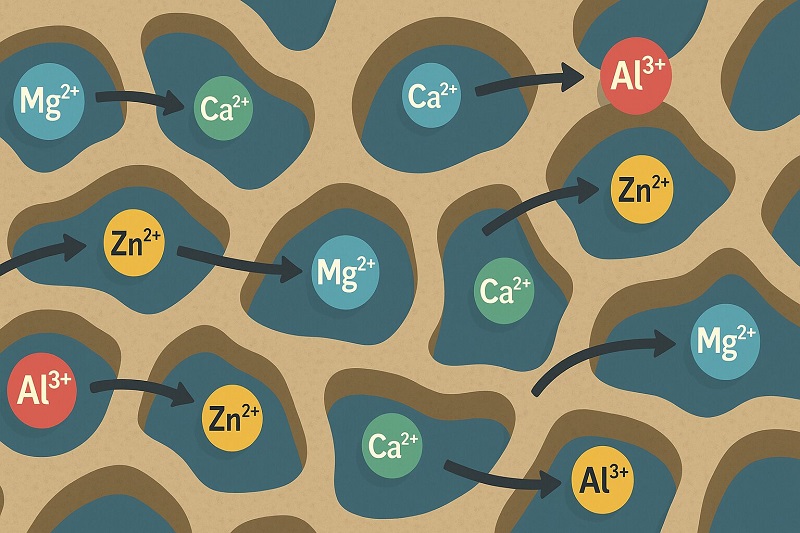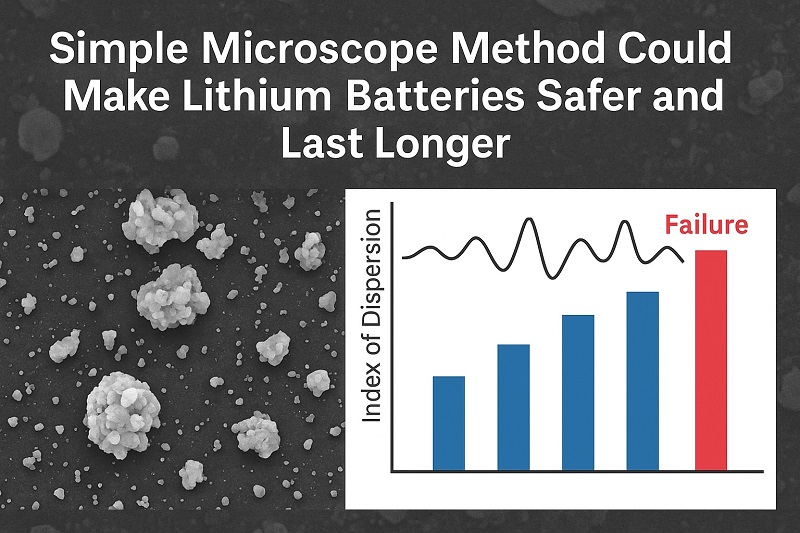From smartphones to electric cars, lithium-ion batteries power much of our modern world. But while they are essential for clean energy and portable...
Vous n'êtes pas connecté
Rubriques :
 - TECHXPLORE.COM - RSS news feed - 13/Aug 19:26
- TECHXPLORE.COM - RSS news feed - 13/Aug 19:26
Quasi-solid electrolyte developed for safer and greener lithium-ion batteries
3D-SLISE is a quasi-solid electrolyte developed at the Institute of Science Tokyo, which enables safe, fast-charging/discharging of 2.35 V lithium-ion batteries to be fabricated under ambient conditions. With energy-efficient manufacturing using raw materials free from flammable organic solvents, the technique eliminates the need for dry rooms or high-temperature processing. Moreover, it also allows direct recovery of active materials through water dispersal—ensuring a sustainable, recyclable approach to battery production.
Articles similaires
Improving zinc battery stability with artificial polymer nanolayers
Aqueous zinc-ion batteries (ZIBs) are gaining attention as a safer and more affordable alternative to lithium-ion batteries (LIBs). While LIBs remain...
Scientists use AI to discover safer, cheaper battery alternatives
A team of scientists from the New Jersey Institute of Technology (NJIT) has used artificial intelligence (AI) to speed up the search for new battery...
Scientists use AI to discover safer, cheaper battery alternatives
A team of scientists from the New Jersey Institute of Technology (NJIT) has used artificial intelligence (AI) to speed up the search for new battery...
Scientists visualize real-time electrolyte behavior in lithium-sulfur battery cells
Using a non-destructive method, a team at HZB investigated practical lithium-sulfur pouch cells with lean electrolyte for the first time. With...
Simple algorithm uses electron microscopy to predict lithium battery failure risk
Researchers at the University of California San Diego have developed a simple yet powerful method to characterize lithium metal battery performance...
AI tools identify promising alternatives to lithium-ion batteries for energy storage
Researchers from New Jersey Institute of Technology (NJIT) have used artificial intelligence to tackle a critical problem facing the future of energy...
AI tools identify promising alternatives to lithium-ion batteries for energy storage
Researchers from New Jersey Institute of Technology (NJIT) have used artificial intelligence to tackle a critical problem facing the future of energy...
Simple microscope method could make lithium batteries safer and last longer
Scientists at the University of California San Diego have come up with a straightforward but powerful way to predict problems in lithium metal...
Simple microscope method could make lithium batteries safer and last longer
Scientists at the University of California San Diego have come up with a straightforward but powerful way to predict problems in lithium metal...
Les derniers communiqués
-
Faruqi & Faruqi Reminds Capricor Investors of the Pending Class Action Lawsuit with a Lead Plaintiff Deadline of September 15, 2025 – CAPR
Faruqi & Faruqi, LLP - 15/08/2025
-
ielo Joins the Connectbase Ecosystem to Expand Access and Strengthen Connectivity Across France
Connectbase - 15/08/2025
-
High-Stakes Action from ACR Poker's Phil's Thrill Tournament to Be Live-Streamed Every Week
Americas Cardroom - 15/08/2025
-
REMAX Sells Master Franchise Rights in Malaysia, Expanding the Global Brand's Presence in Southeast Asia
RE/MAX, LLC - 15/08/2025
-
Jollibee and Global Girl Group KATSEYE Ignite Partnership to Create Joyful New Connections with Their North American Fans
Jollibee - 15/08/2025
-
Century Communities Announces Return to Popular McCormick Development in Port Orchard, WA
Century Communities - 14/08/2025
-
South University, West Palm Beach Physician Assistant Program Achieves 10-Year Accreditation-Continued Status from ARC-PA
South University - 14/08/2025
-
InventHelp Inventors Develop New Device to Store and Access Wet Wipes (PTA-378)
Inventhelp - 14/08/2025
-
Synergy Spine Solutions Appoints Troy Wahlenmaier as Chief Commercial Officer
Synergy Spine Solutions - 14/08/2025
-
Fanatics Branded NFL, NBA, MLB & NHL Apparel Sales Banned in Australia
FanFirm Pty Ltd - 12/08/2025


